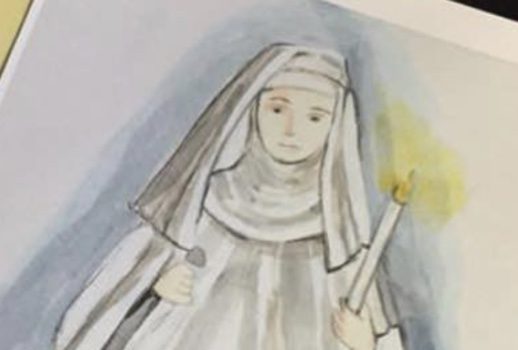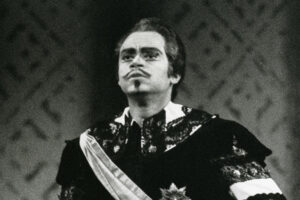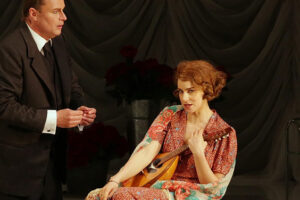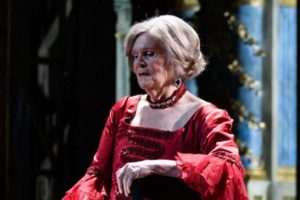

Gone are the halcyon days of tradition and ritual, where a straightforward, smartly directed production—one told in period-appropriate costumes amidst uncomplicated sets—might let a singer put her individual stamp on a role, or, even better, reveal something fresh and interesting about the opera itself.
Enter the Martina Arroyo Foundation, whose acclaimed Prelude to Performance program has, for twelve seasons now, given rising talents the rare chance to perform shtick-free in New York. This year, Prelude spotlights works by Bizet and Puccini: I missed Carmen, which also plays over the weekend, but was among the lucky ones able to catch Friday night’s premiere of Suor Angelica and Gianni Schicchi at the Kaye Playhouse at Hunter College.
Who would have guessed that a pair of modestly produced one-acts would provide the best opera-going experience of the summer? As with its refreshingly well-sung and no-nonsense Bohème last year, Prelude’s abridged Trittico owes much of its success to the nurturing support of director Ian Campbell, and to Willie Anthony Waters, whose conducting allowed two superb casts to feel around and find gold in Puccini’s original material.
Confronted with all the phenoms onstage, a stunned audience went rifling through programs for performer bios and upcoming engagements. Recent Met Auditions winner Michelle Johnson turned in an expert performance as bereaved mother Angelica, delivering a heartbreaking “Senza Mamma” largely from the floor lying down, or else on her knees.
As her chilly aunt La Principessa, Leah de Gruyl served fine acting and a commendable, nicely tuned mezzo, even from top to bottom. Rounding out the rest of the convent, the sisters managed to locate the delicate badinage in the melodrama—too often overlooked in this late-Puccini masterpiece. I particularly enjoyed Joshua Rose’s lighting for the miracle scene at the opera’s end: a cosmic, starry panorama, which, while unobtrusive, appeared almost Kubrickian as the music pooled and swelled underneath.
The evening’s ensuing production of Gianni Schicchi supplied an ensemble that played the venal Florentine family just right: slapstick and vaudevillian, with great, chauvinist gusto. In the title role, baritone Joshua DeVane was funny and in healthy voice, as was Spencer Hamlin as the lovesick Rinuccio. Anna Whiteway’s Lauretta made her dear daddy proud. And Charles Caine’s costumes were indeed 13th-century appropriate.
There’s been a lot of talk lately about the dearth of divas in contemporary opera. But this production left little question that pleasure is still to be found at the theatre: a dazzled, responsive audience whooped and cheered after each set piece. Divas may be grand, but there’s no thrill quite like stumbling on new talent.
























Comments